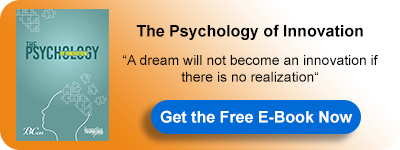Innovation: A Talent or a Skill?
The question of nature versus nurture is a paradoxical one, an age-old debate, much like the question of what came first, the chicken or the egg? Specific skills, such as riding a bike or reading, are undoubtedly the result of deliberate nurturing, whilst personal characteristics are arguably more innate. But, what about innovation? Is innovation inherent, a talent acquired at birth by a select few; or is it a learned skill, honed with patience and practice, and available to the masses?
The discussion raised the following questions:
- What is “talent” or who is a talented person?
- Which skills makes a person attractive in the market?
- Does having “talent” strengthen innovation processes in the region or country?
In order to be considered as “talent” one should possess “natural aptitude or skill” (Oxford Dictionaries), which will make her/him “do something well” (Oxford Advanced Learner’s Dictionary). Herewith, natural ability is that with which the person is born and is difficult to influence. However, natural skills are always only a clause, because their existence does not imply effective usage. In the case of their non-development they will not bring any added-value to the person’s innovative abilities. Thus, in contrary "skill" is also considered as “the ability to do something well” (Oxford Dictionaries), however as a “developed talent or ability” (The Free Dictionary). Thus, while speaking about "talented people" or “talent” and their contribution to innovation, what we really mean is the "natural developed and learned skills" that can be used in order to upgrade knowledge, processes and/or products.
Creativity is perceived to be something external and out of our control or an inherent talent for a chosen few – but thinking and idea-generation are skills that can be learned. Some people do have a greater aptitude for thinking creatively and laterally, just as some people are more logic-based but it is a misconception that creativity is an exclusive right of a select group.
Since Innovation is highly important in the workplace, it is not quite fair to view it in light of the individual only. Viewing innovation in terms of individuals having the right qualities or skills, decreases the importance of teamwork, the main nucleus and component in today’s organization. The question should not be whether the individuals are talented or not, the right question should be, whether our teams collectively have the diverse skills of innovation and the capacity to collaborate and bring those skills together. Thus, we need to make sure that we have the appropriate combination of skilled people.
Moreover, studies at Harvard Business School show that, although some individuals may be more creative than others, almost every individual can be creative in the right circumstances.
For more about this topic, download our latest book "The Psychology of Innovation" for FREE:
